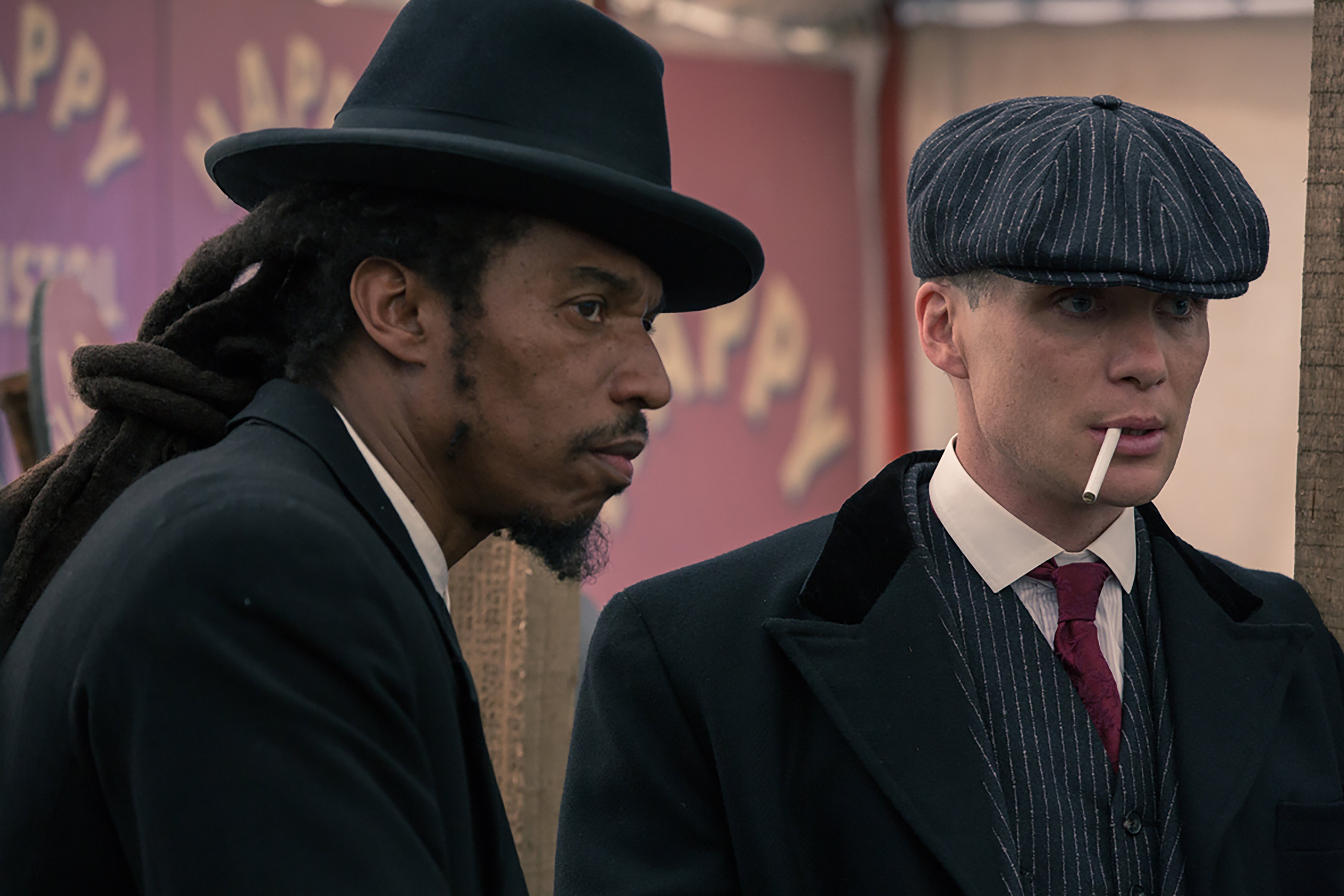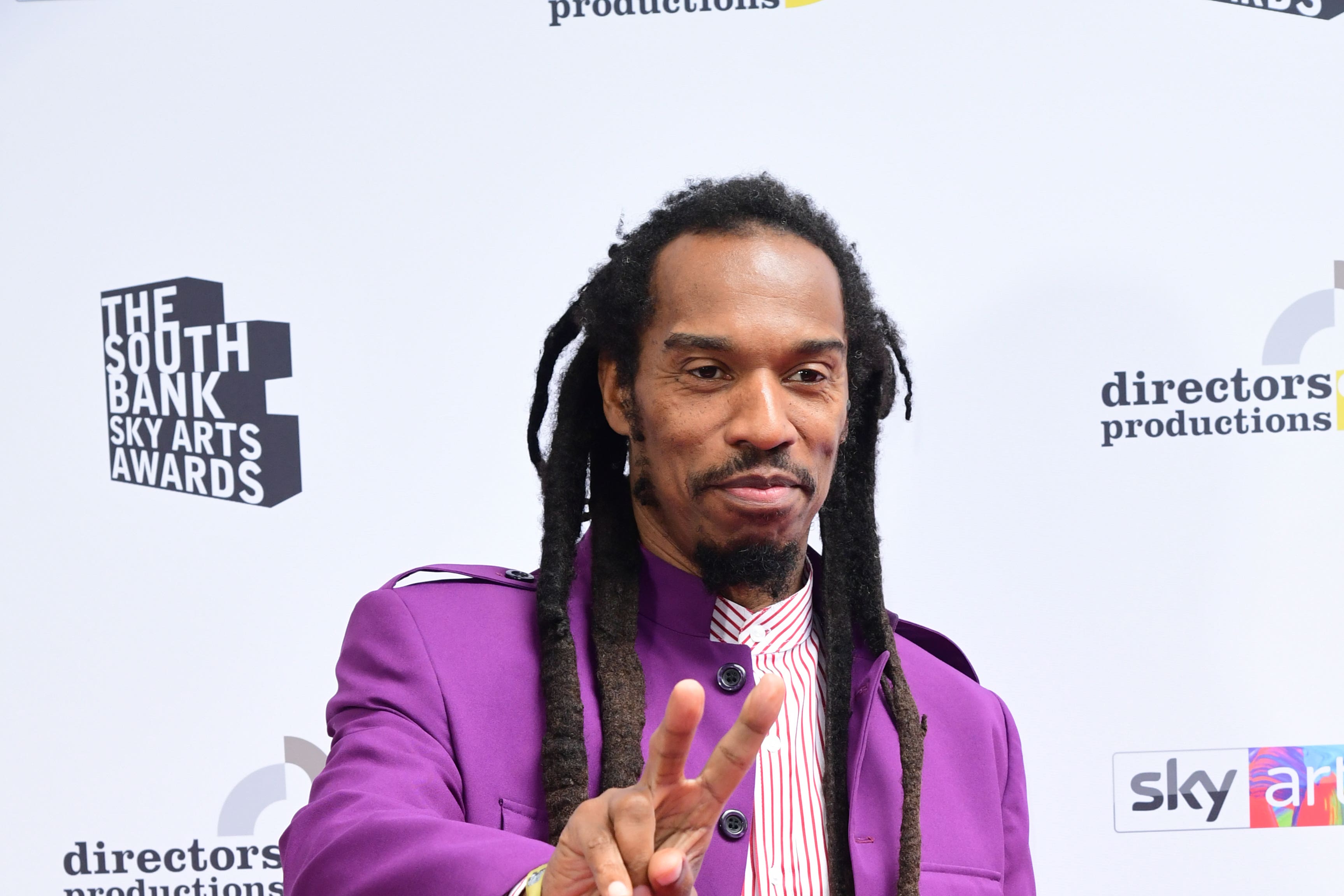Benjamin Zephaniah, pioneering poet and Peaky Blinders star, dies aged 65
Zephaniah was diagnosed with a brain tumour eight weeks ago
Pioneering British writer and poet Benjamin Zephaniah, who used humour and wit to address political injustices, has died aged 65.
The dub poet, known for his works about refugees and healthy eating, had been diagnosed with a brain tumour.
He was also remembered for playing preacher Jeremiah Jesus on Peaky Blinders, the gritty crime drama set in his home city of Birmingham.
“It is with great sadness and regret that we announce the death of our beloved husband, son, and brother in the early hours of this morning [7 December],” a statement posted on his social media channels read. “Benjamin was diagnosed with a brain tumour eight weeks ago.
“Benjamin’s wife was by his side throughout and was with him when he passed. We shared him with the world and we know many will be shocked and saddened by this news,” the statement continued. “Benjamin was a true pioneer and innovator, he gave the world so much.
“Through an amazing career, including a huge body of poems, literature, music, television, radio, Benjamin leaves us with a joyful and fantastic legacy.”
One of Britain’s most prolific literary voices, Zephaniah’s work dealt with themes of racism, poverty, and social injustice.
Dubbed the “people’s laureate”, Zephaniah declared it his life’s purpose to democratise access to the arts by “taking poetry everywhere” – including to the people who could not read.

This was how “dub poetry” was born, with the outspoken activist reciting his poems over the beats of reggae music.
Zephaniah – full name Benjamin Obadiah Iqbal Zephaniah – was born in Handsworth, Birmingham on 15 April 1958. His father was a postman from Barbados, while his mother was a nurse from Jamaica.
Diagnosed with dyslexia at an early age, he left an approved school unable to read or write at the age of 13.
When he was 18, his friend gave him a typewriter that inspired him to become a writer. It is currently on display at the Birmingham Museums Trust.
Four years later, his first book Pen Rhythm was published – and Zephaniah was off, resuscitating poetry’s dead image within academia, one poem at a time.
His influences included the music and poetry of Jamaica as well as what he called “street politics”.
In his 2001 book Too Black Too Strong, Zephaniah detailed the struggles of Black Britain with incredible force and insight. He followed that up with the release of We Are Britain! in 2002, a collection of poems celebrating the country’s unique cultural diversity.
The Rastafarian vegan, who adopted a meat-free diet when he was 13, was also the author of Talking Turkeys, which urged readers to “be nice to yu turkeys dis christmas”. The book went on to become a huge success when it was published in 1994, with a reprint ordered six weeks after its release.
He was married to Amina, a theatre administrator, for 12 years before they divorced.
He did not have any children and, in 2022, Zephaniah addressed his struggles with infertility.

“Every few weeks I would have to suffer (what I thought of at the time as) the humiliation of going for sperm tests,” he wrote for iNews. “As a young man, I watched my friends having kids. Some would complain about how expensive they were, but then say that I was lucky, because I was having fun, and getting away with it.”
Zephaniah said he and his ex-wife had tried “make up for all the heartache” of not having children by adopting, but could not because of his criminal record – “albeit one that has been clean since 1976” after Zephaniah was convicted for burglary.
However, he continued, “I stopped worrying about my legacy when I started coming across children that were raised on my poetry, and I have now met six of the seven children who I was told were named after me”.
During a 2018 interview on BBC Radio Five Live, Zephaniah admitted he had been violent to a former partner.
“The way I treated some of my girlfriends was terrible,” he confessed. “At one point I was violent. I was never like one of these persons who have a girlfriend, who’d constantly beat them, but I could lose my temper sometimes.
“There was one girlfriend that I had, and I actually hit her a couple of times, and as I got older I really regretted it. It burned my conscience so badly. It really ate at me, you know. And I’m a meditator. It got in the way of my meditation.”
His career is littered with awards, including the BBC Young Playwrights Award, as well as honorary doctorates from universities across the country.
In his poem, Bought and Sold, Zephaniah rebukes his own Black contemporaries who compromise their work in exchange for “smart big awards and prize money” as “the lure of meeting royalty” is “damping creativity”.
In 2003, Zephaniah turned down an OBE for his services to literature, stating that he was “proudly anti-empire”.
“Me? I thought, OBE me? Up yours, I thought. I get angry when I hear that word ‘empire’; it reminds me of slavery, it reminds of thousands of years of brutality, it reminds me of how my foremothers were raped and my forefathers brutalised,” he said.
Join our commenting forum
Join thought-provoking conversations, follow other Independent readers and see their replies
Comments
Bookmark popover
Removed from bookmarks